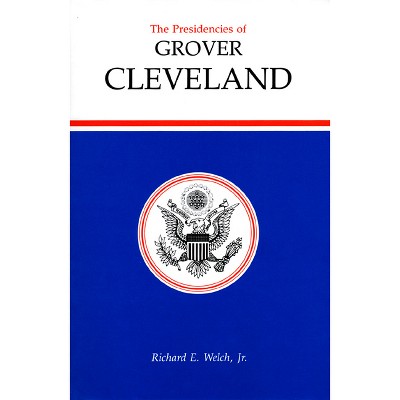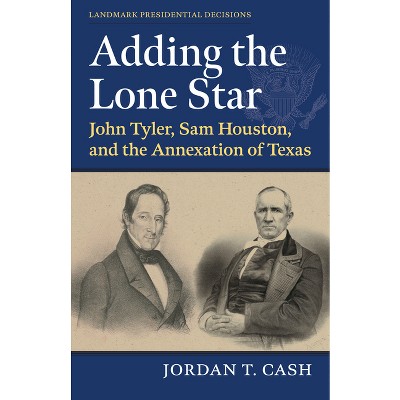Sponsored

Teaching Empire - by Elisabeth M Eittreim (Paperback)
In Stock
Sponsored
About this item
Highlights
- At the turn of the twentieth century, the US government viewed education as one sure way of civilizing "others" under its sway--among them American Indians and, after 1898, Filipinos.
- Author(s): Elisabeth M Eittreim
- 352 Pages
- History, United States
Description
About the Book
In vivid prose, the author recovers the world of American teachers who followed the flag of an expanding American empire from Carlisle, Pennsylvania, to Manilla, American teachers at the turn of the twentieth century in search of work, adventure, and meaning.Book Synopsis
At the turn of the twentieth century, the US government viewed education as one sure way of civilizing "others" under its sway--among them American Indians and, after 1898, Filipinos. Teaching Empire considers how teachers took up this task, first at the Carlisle Indian Boarding School in Pennsylvania, opened in 1879, and then in a school system set up amid an ongoing rebellion launched by Filipinos. Drawing upon the records of fifty-five teachers at Carlisle and thirty-three sent to the Philippines--including five who worked in both locations--the book reveals the challenges of translating imperial policy into practice, even for those most dedicated to the imperial mission. These educators, who worked on behalf of the US government, sought to meet the expectations of bureaucrats and supervisors while contending with leadership crises on the ground. In their stories, Elisabeth Eittreim finds the problems common to all classrooms--how to manage students and convey knowledge--complicated by their unique circumstances, particularly the military conflict in the Philippines. Eittreim's research shows the dilemma presented by these schools' imperial goal: "pouring in" knowledge that purposefully dismissed and undermined the values, desires, and protests of those being taught. To varying degrees these stories demonstrate both the complexity and fragility of implementing US imperial education and the importance of teachers' own perspectives. Entangled in US ambitions, racist norms, and gendered assumptions, teachers nonetheless exhibited significant agency, wielding their authority with students and the institutions they worked for and negotiating their roles as powerful purveyors of cultural knowledge, often reinforcing but rarely challenging the then-dominant understanding of "civilization." Examining these teachers' attitudes and performances, close-up and in-depth over the years of Carlisle's operation, Eittreim's comparative study offers rare insight into the personal, institutional, and cultural implications of education deployed in the service of US expansion--with consequences that reach well beyond the imperial classrooms of the time.Review Quotes
"Teaching Empire is undeniably an important contribution to U.S. empire studies, particularly tutelary colonialism. Eittreim's work is remarkable and meticulous."--Pacific Historical Review
"Will appeal to students of the off-reservation boarding school movement as well as those seeking to deepen their knowledge of imperial education overseas."--American Indian Culture and Research Journal
"Eittreim's work impressively connects US civilizing missions for Native Americans and Filipinos through the realm of education. This book would be excellent reading for courses examining the history of education, empire, or Filipino or Native American policy."--H-Net Reviews
"After the Indian wars and the nation's subsequent conquest of the Philippines, it fell to teachers to win over the hearts and minds of children now living within the confines of the American empire. In this important study, Eittreim tells us much about who these teachers were, their role in advancing the colonial project, and their day-to-day encounters with the 'other.'"--David Wallace Adams, author of Education for Extinction: American Indians and the Boarding School Experience, 1875-1928 and Three Roads to Magdalena: Coming of Age in a Southwest Borderland, 1890-1990
"Colonization does not just happen. It requires human agency. By placing the foot soldiers of assimilation and civilization at the center of the story, Elisabeth Eittreim offers salient historical lessons for how ordinary Americans have actively shaped the contours and practices of the US imperial education project. As this important book suggests, if we have the capacity to advance colonial rule, we also have the capacity to dismantle it."--Clif Stratton, author of Education for Empire: American Schools, Race, and the Paths of Good Citizenship
"This important new look at teaching in the context of empire is engaging, enraging, and intimate. From Carlisle, Pennsylvania, to Manilla, American teachers at the turn of the twentieth century followed closely behind the violent expansion of the American empire in search of work, adventure, and meaning. In vivid prose, Eittreim recovers their world, unpacking the quotidian paradoxes of living, loving, surviving, and, of course, teaching at the end of a gun."--Benjamin Justice, professor and chair of the Department of Educational Theory, Policy, and Administration, Rutgers Graduate School of Education












